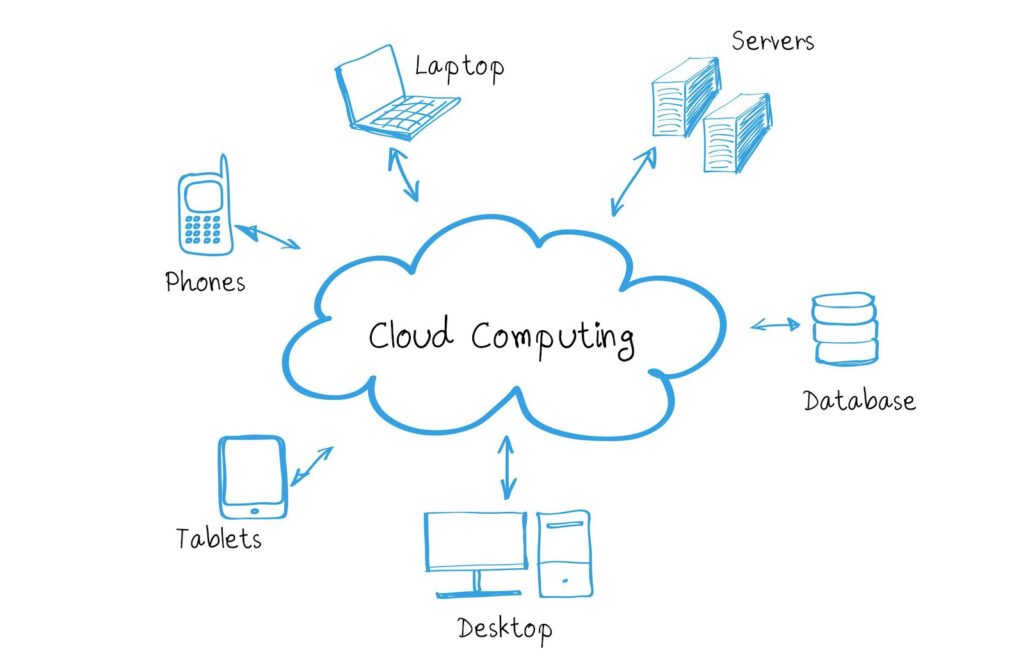6 Ways Cloud Computing Actually Enhances Your Security Capabilities
The term “cloud computing” has been in use since the early 2000s, yet the origins of computing services trace back to the 1960s. During the period spanning the 1970s to the 1990s, significant strides in computing technology laid the groundwork for the emergence of cloud computing. Notably, the 1990s witnessed the emergence of companies offering virtual private networks (VPNs), which served as a precursor to the modern-day cloud computing paradigm.
You may prioritize various aspects of your operations, but for cloud providers, security stands out as a paramount concern. Ensuring top-tier security measures is essential for their continued success and competitiveness. Take Google Cloud, for instance, which boasts a “secure-by-design infrastructure,” integrating default protection and encryption to fortify customer data.
Furthermore, cloud providers must adhere to rigorous standards, obtaining independent, internationally recognized certifications and undergoing audits covering security personnel, processes, and technologies. AWS, for instance, consistently attains third-party validation across thousands of global compliance requirements. Meeting these stringent criteria often exceeds the capacity of many organizations in terms of time, resources, and budget.

Here are six ways cloud computing can elevate your security posture
1. Seamless Data Encryption: Cloud service providers employ advanced encryption techniques to protect data both at rest and in transit. By leveraging strong encryption algorithms and robust key management practices, cloud computing ensures that sensitive information remains secure, even if unauthorized parties gain access to the data.
2. Improved Availability via Scalable Security Solutions: Cloud-based security solutions are inherently scalable, allowing businesses to adapt to changing security needs quickly. Whether you’re a small startup or a large enterprise, cloud computing enables you to deploy and scale security tools and resources according to your requirements, without the need for significant upfront investment in hardware or infrastructure.
3. Centralized Security Management: Cloud platforms provide centralized security management interfaces that allow administrators to monitor and manage security policies across the entire organization from a single console. This centralized approach streamlines security operations improve visibility and ensure consistent enforcement of security policies across all assets and environments.
4. Automated Threat Detection and Response: As per Gartner the technology landscape continues to evolve in all directions, security teams continue to battle with resourcing and achieving their desired objectives. Cloud-based security solutions leverage machine learning and artificial intelligence algorithms to detect and respond to security threats in real-time. These systems analyze vast amounts of data to identify anomalous behavior patterns indicative of potential security breaches, enabling organizations to respond swiftly and mitigate risks before they escalate.
5. Disaster Recovery and Business Continuity: Cloud computing offers robust disaster recovery and business continuity capabilities, allowing businesses to recover critical data and applications quickly in the event of a security incident or natural disaster. By replicating data across multiple geographically dispersed data centers, cloud platforms ensure high availability and resilience, minimizing downtime and ensuring business continuity.
6. Compliance and Regulatory Support: Many industries are subject to stringent regulatory requirements regarding data security and privacy. Cloud service providers invest heavily in compliance certifications and adhere to industry standards to ensure that their platforms meet the necessary regulatory requirements. By leveraging certified cloud services, businesses can simplify compliance efforts and ensure that they remain in compliance with relevant regulations.






